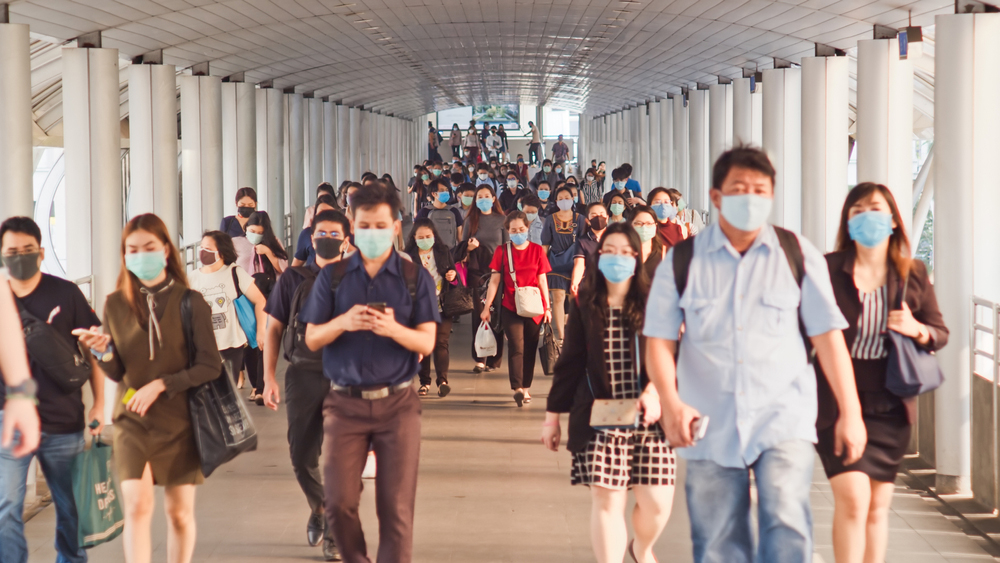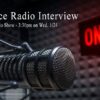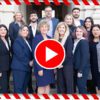Tales Of Civility in Times of Pandemic
By Erin Joyce and Carolin Shining
It was the best of times, it was the worst of times, it was the age of wisdom, it was the age of foolishness, it was the epoch of belief, it was the epoch of incredulity… it was the spring of hope, it was the winter of despair …
On January 2, 2020, forty-one patients with laboratory-confirmed cases of the 2019 novel coronavirus infection were admitted into an unnamed hospital in Wuhan, China. Within three months, these seemingly innocuous hospitalizations would lead to potentially the single largest shift in civil procedure in American legal history. In the early days of the coronavirus pandemic, attorneys who pursued cases “as usual” faced significant surprises in the courthouse. This article describes some of the missteps made in the early days of the pandemic, how the judicial system reacted and how the radical shifts caused by the pandemic shut-downs may alter how we view ethical, healthy conduct in light of new behaviors and beliefs.
The Age of Wisdom, Incredulity vs Foolish Judgment
As the emergency created by the pandemic grew in March and April of 2020, judges across the United States immediately took litigants and their attorneys to task when they completely ignored its gravity. In one widely reported case, United States District Court Judge Steven C. Seeger of the Northern District of Illinois directly chastised the holder of several copyrights involving drawings of unicorns. In a blistering opinion denying a restraining order on infringing goods, the court sent a very clear message:
Plaintiff recognizes that the community is in the midst of a “coronavirus pandemic.” . . . But Plaintiff argues that it will suffer an “irreparable injury” if this Court does not hold a hearing this week and immediately put a stop to the infringing unicorns and knock-off elves. . . . If ever there’s a time when emergency motions should be limited to genuine emergencies, it is now. . . . The filing calls to mind the sage words of Elihu Root: “About half of the practice of a decent lawyer is telling would-be clients that they are damned fools and should stop.” [citation omitted.] The world is facing a real emergency. Plaintiff is not.
Likewise, in the Southern District of Florida, Magistrate Judge Jonathan Goodman was not amused when a litigant opposed a routine motion to continue discovery deadlines and trial:
Plaintiff’s motion represents that Defendant objected to the request [to continue deadlines in light of the global pandemic]. That’s right. Defendant objected to what appears to be a realistic and commonsense motion to reschedule the trial and other deadlines. I had to read the certification twice in order to make sure that I was reading it correctly. … Rather than guess at defense counsel’s motivation, the Undersigned requires defense counsel to by March 26, 2020 file a double-spaced memorandum explaining (1) whether he did, in fact, oppose the motion to reschedule the trial and enlarge trial-related deadlines and the mediation deadline, and (2) all the reasons justifying his opposition ….Before filing this response, though, defense counsel may want to brush up on the concepts or karma, goodwill, grace, compassion, equity, charity, flexibility, respect, spirituality, selflessness, kindness, public spirit, social conscience, and empathy.
Magistrate Judge Goodman’s language paralleled his incredulity in an earlier opinion on March 21, 2020 when he denied a “emergency” request to compel a corporate deposition of a cruise line executive in C.W. v. NCL (Bahamas, Ltd.):
Moving past the incorrect and, frankly, reckless designation of this dispute as an “emergency,” the Undersigned is shocked that counsel could not on their own resolve the issue. Given the health and economic crisis we are in, not postponing the deposition scheduled for next week is patently unreasonable.
If all the issues we are currently facing were to be organized on a ladder of importance, this deposition-scheduling dispute would not even reach the bottom rung of a 10-rung ladder.
Not all courts exhibited appreciation of the growing emergency and its impact on “business as usual” in the courthouse. For example, an emergency administrative order issued in a Cleveland, Ohio court postponing all hearings for criminal defendants released on their own recognizance until April 3 to prevent “community spread” of coronavirus. Despite this, a local judge issued 33 arrest warrants for non-appearing defendants. The judge added, on video tape, that the public defender should not call his clients and tell them of the continuances and then personally insulted him after he left the courtroom. As a result of this rash conduct, the Ohio Supreme Court removed the judge’s authority pending investigation.
Meanwhile in Michigan, an Oakland County circuit judge had criminal defendants detained for lateness, at the same time as others were releasing jailed inmates due to the coronavirus pandemic. In one of the cases, a 61-year-old man’s lateness had been due to his attendance in urgent care for viral pneumonia. Likewise, a mother was detained for being twenty minutes late to court, and her hearing was continued well into April. News reports indicated that the local ACLU and her attorney were able to secure a writ for her release.
An Epoch of Incredulity
The pandemic also was the subject in an emergency motion brought in one of the most heated litigation matters In California, namely the Lyft driver cases. On March 19, 2020, Plaintiffs’ counsel representing Lyft drivers filed an emergency request moved to have the provisions of AB 5 immediately apply to all drivers. Once applied, Plaintiffs’ argued that drivers, if sick, could request sick leave and thereby avoid the Hobson’s choice of exposing passengers to coronavirus vs. earning money as an essential worker. In denying the request, the court noted the extremeness of the pandemic for posterity:
The coronavirus pandemic has caused millions of people to lose their jobs entirely. Millions more have seen their income streams decimated. And many of these people were already living hand to mouth. Their only recourse during the crisis will be to rely on emergency aid from the federal and state governments—aid like cash payments, unemployment benefits, emergency refundable tax credits, and sick pay.
Even so, the judge simply did not find it credible that Lyft drivers would intentionally drive passengers when the drivers may have been diagnosed or exposed to coronavirus. The judge criticized counsel’s “tone-deafness” in making this argument as the “crisis unfolds”. The judge did at same time chide Lyft for refusing to comply with the requirements of AB 5 and lamented that “[i]n short, there are no heroes in the story of this case.”
Echoing Dickens’ ‘epic of incredulity,’ bad attorney behavior was not limited to the courts. In early April, an intellectual property attorney in New Jersey was criminally charged for holding an impromptu rock concert on Facebook Live. Notably, however, the concert was on his front porch and about 30 neighbors gathered together to listen. In a public statement on April 6, 2020, no less an authority than New Jersey Attorney General Gurbir Grewal explained why severe criminal charges were warranted: “The governor’s executive orders are common-sense measures to keep people safe during this historic health crisis . . . . When people. . . flout the orders and show disrespect and hostility to police officers, they not only put themselves and the others immediately involved in peril, they risk inciting others to engage in such irresponsible and dangerous behavior.”
II. Can Changes to Civility Caused by the Pandemic bring Lawyers out of the Darkness of Unbridled Zealousness and into Better Wellness for All?
In 400 B.C., the Greek philosopher Hippocrates developed the idea that there were several basic temperaments among people, including the “Driven” and the “Analytical.” “Driven” and “Analytical” people exemplify generally positive traits needed by attorneys such as the ability to deal with stress and how to make good decisions under pressure. Indeed, the very way in which bar exams are administered and the intensity of self-imposed and external deadlines mean that these traits are essential for lawyer survival.
The selection of these personality traits in lawyers also obviously has a darker side: driven and analytical people are also generally irritated by irrational change, frustration and delay. The axiom “justice delayed is justice denied” is writ large in every attorney’s mind. Speed matters: timely mediations, firmly held trial dates, immediate responses to urgent client needs are crucial.
However, the grinding halt to all court proceedings and even nearly the entire U.S. economy during the early days of the pandemic changed everything. Control over attorneys’ cases and even their very businesses evaporated in less than a month’s time. Without warning or the ability to prepare, emergency court closures, continuations and other orders exploded all over the country. Offices closed, video meetings replaced live ones, mediations were cancelled, trial dates were vacated indefinitely, depositions were placed on hold, pleadings needed to be filed in physical drop boxes, and new still emergent previously even unheard of technologies were mandated – a panoply of events outside the most creative lawyers’ imaginations. Even merely following the daily deluge of emergency orders required patience, time and high levels of engagement by busy, stress-out litigators.
Despite these epic challenges, jurists and lawyers have responded with equally epic grace. Many have been engaging in unprecedented actual self-reflection. As suggested by Judges Seeger and Goodman and countless other jurists, lawyers are being asked to consider whether time-worn strategies of pressure and “giving no quarter” may be unhealthy for themselves as much as for their clients. Lawyers have literally almost been forced to reconnect with principles of thoughtful negotiation, reframing concepts of zealousness and delving into habits for wellness, fellowship and mindfulness.
Wellness and Negotiation Strategy: Old-school lessons from leaders in negotiation strategy and wellness demonstrate a way forward in the post-pandemic era. The seminal text of modern negotiation “Getting to Yes: Negotiating Agreement Without Giving In” has long provided solutions to deal with “hard bargainers.” “Pressure tactics” may no longer work in a post COVID-19 world. If stymied by a court’s recognition that delay will not harm the litigation system, mere contests of will might no longer be effective. If life stopped completely during a global emergency, massive shifts in what is considered important and persuasive may take hold:
It is often hard to decide what it means to negotiate in “good faith.” People draw the line in different places. It may help you to ask yourself such questions as: Is this an approach I would use in dealing with a good friend or a member of my family? If a full account of what I said and did appeared in the newspapers, would I be embarrassed? In literature, would such conduct be more appropriate for a hero or a villain?
The authors conclude: “It is easier to defend principle than an illegitimate tactic: Don’t be a victim.” Instead, post-pandemic practice may turn on use of the following rules outlined in “Getting to Yes.” First, separate the people from the problem, next focus on interests, not positions and, third invent options for mutual gain. These win-win solutions, taught to many in law school and then forgotten, given us the ability to move forward with civility and diligence.
The Old Role of ‘Zealousness’ on Wellbeing: The judges who rejected the harsh practices of litigants in the early days of the pandemic implicitly were striking back at long-held definitions of what it means to be “zealous” and “diligent” in the service of clients’ rights. These tensions have been debated for decades. For example, the ABA Model Rules of Professional Conduct literally begin with a discussion of these two competing ideals: “[v]irtually all difficult ethical problems arise from conflict between a lawyer’s responsibilities to clients, to the legal system and to the lawyer’s own interest in remaining an ethical person while earning a satisfactory living.” This precise ethical dilemma resulted in massive cognitive dissonances during the stress of the pandemic closures.
In thinking through the needs of an attorney to both be zealous and maintain an ethical balance, it is worth noting that the meaning of the word “zealous” has changed dramatically over time. In the 18th century, its meaning evolved from being “warmly engaged or ardent on behalf of something….” into being “fiercely partisan” or “uncompromisingly enthusiastic.” Yet in light of necessary sacrifices called for during the pandemic, attorneys are asking themselves the same questions demanded by Judge Goodman: Is what I am doing really good for society, for my client and for my own long term health? The answer is that the ability to show grace and courtesy during times of immense stress may not only be the best way to represent a client, but the best way to support and strengthen our legal system as a whole.
Wellness, health and fellowship: In only a few weeks’ time, nearly all law firms across the country big and small literally shuttered massive and expensive physical locations and shifted to using thousands of high-technology remote home offices. Governmental agencies ordered unprecedented thousands of video hearings in juvenile and criminal matters. Rules large and small standing in the way of remote hearings were scrapped by order after order. Technological controversies such as e-service and video court appearances — debated for decades — immediately and overnight became not only the norm, but actually enforced by governmental and court orders.
While technology can be good, the impact after several weeks of this isolation clearly took its toll on many of those forced to work at home, kept from court and struggling to adjust to the new realities. These challenges were only exacerbated by the surprising fact that lawyers are actually involved in the loneliest of all of the professions.
Again, however, lawyers have responded in countless and creative ways to the necessities of continuing the practice of law in near isolation. These have included an explosion of supportive groups on social media, the creation of dozens of free continuing education seminars through national, state and local Bar Associations and greatly increased attendance at networking groups who seamlessly moved into video streaming platforms such as Zoom, Google Hangouts, Facetime and Facebook. Firms checked in personally to see how things were going with clients new and old. And firms big and small gave free or greatly discounted advice to those in need of immediate relief and support. The technologies needed to create what became survival strategies were far from perfect, and the stresses far from lifted, but lawyers pivoted, adjusted and found new ways to connect with clients, courts and staff.
CONCLUSION
As noted in the ABA’s comprehensive 2017 Report from the National Task Force on Lawyer Well-Being, “[t]o be a good lawyer, one has to be a healthy lawyer.
As we now move into the post-pandemic world, civility and wellness should not be mere buzz words or fleeting fads. They can be daily practices that improve lawyer satisfaction, strengthen our legal system and provide better results for clients. If enduring a pandemic has taught the legal system anything, it perhaps is that our judicial system is robust and resilient, and lawyers may be able to follow suit to make our lives and practices not just survive, but flourish.
Erin Joyce is founder of Erin Joyce Law in Pasadena.
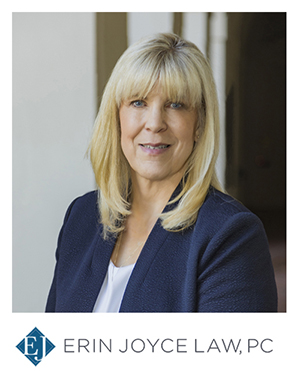
Erin is a former 18 year State Bar prosecutor now focusing on ethics consultations for small and mid-sized firms and State Bar defense.
Erin Joyce Esq.
117 East Colorado Blvd., Suite 465 Pasadena, California 91105
Call: 626.314.9050
Email: [email protected]
LAW IN THE NEWS
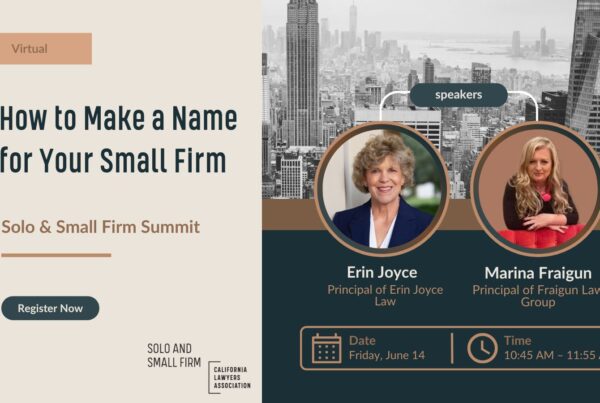
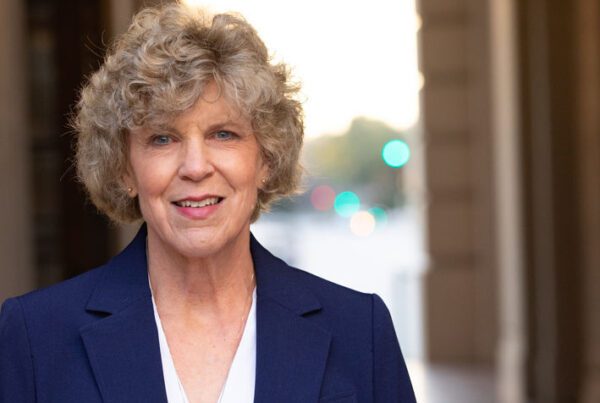
Top Professional Responsibility Lawyers 2024
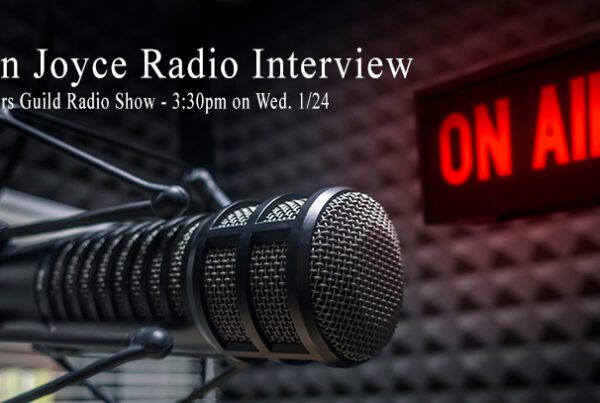
Lawyers Guild Radio Show
CONTACT ERIN JOYCE LAW
REPRESENTING CLIENTS THROUGHOUT ALL OF CALIFORNIA
When you get a letter from the State Bar, don’t go it alone! You need competent, experienced counsel to respond to the State Bar at every stage. Your license is at risk, so ensure you have the best representation from a former State Bar prosecutor before sending any response to an investigator or responding to formal charges leveled by the State Bar. You cannot make an informed decision without good advice. Call Erin now.

